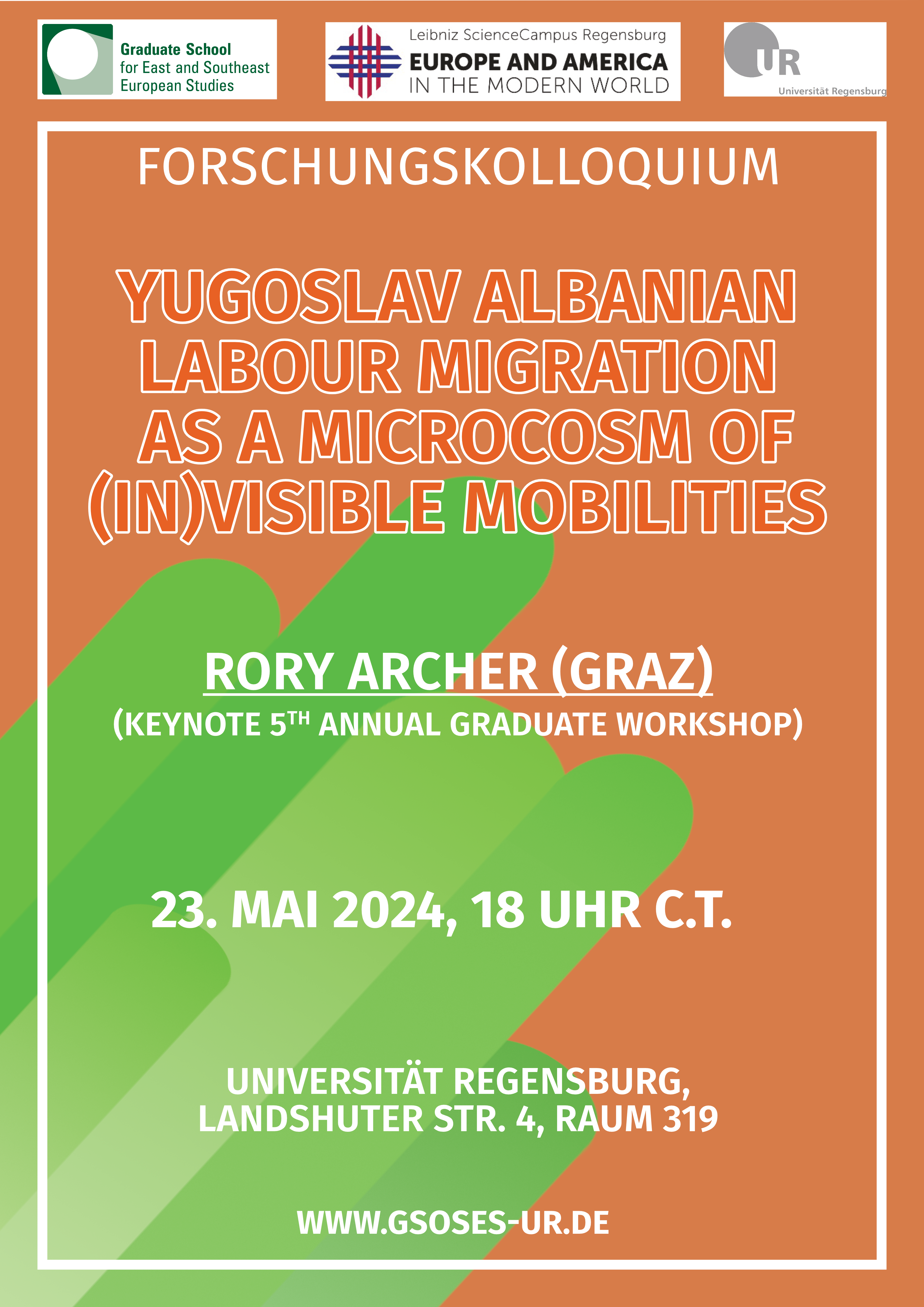Research Colloquium | 23 May, 18:15 | Rory Archer (Graz) | Yugoslav Albanian Labour Migration as a Microcosm of (In)Visible Mobilities
When? Thursday, 23 May 2024, 18:15
Where? Room 319, Altes Finanzamt, Landshuter Str. 4
Rory Archer:
Rory Archer is a social historian of 20th-century Southeast Europe, holding a PhD from University of Graz in 2015. He received his BA (International Relations) from Dublin City University and his MA (Nationalism Studies) from Central European University, Budapest. Based in Austria for the past decade, he focuses on Yugoslavia's social history, particularly labor, gender, socialism, housing, everyday life, and popular culture. He is experienced in working through oral history, grounded theory and other qualitative, interpretive methods which link social science approaches to social history research. He was Mellon Post-Doctoral Research Fellow at the UCL School of Slavonic and East European Studies from 2016–2018 and joined the Chair of East European History at Konstanz University in 2019 as a lecturer and postdoc. At the Central European University, Budapest (Nationalism Studies Program) and the University of Belgrade (Faculty for Political Sciences) he teaches as a visiting lecturer. Currently, Rory leads a project (2020–2024) on the history of intra-Yugoslav Albanian migration during late-socialism.
Abstract:
This talk seeks to unpack the interlocking and historically contingent nature of the mobilities of Yugoslav Albanians in the Cold War era. Based on a research project examining labour migration from the peripheral Yugoslav Southeast to the core Northeast of the county during late socialism (i.e. domestic migration), the empirical data gathered points to the importance and endurance of previous mobilities as well as lateral migration to neighbouring and more distant lands alike. The research has led the team to unexpected phenomena like Albanian-operated Hawala (informal banking) in post-Prague Spring Czechoslovakia, informal business dealings across Cold War borders, the memory of post-imperial entrepreneurialism linking rural Macedonia to centres like inter-war Bucharest and Istanbul, and the presence of Albanian businesspeople in non-aligned, postcolonial Zambia. I propose that the case of Yugoslav Albanian migration and mobility was a largely institutionally invisible phenomenon. This is despite Albanian lands becoming, in the words of migration scholar Russell King, ‘a laboratory for the study of migration and development’ in the postsocialist era. ‘Change from below’ as a result of migration and mobility, resulted in profound transformations for the Yugoslav Albanian protagonists concerned. I suggest that such processes can be effectively studied through a methodological framework of bottom-up social and labour history.

